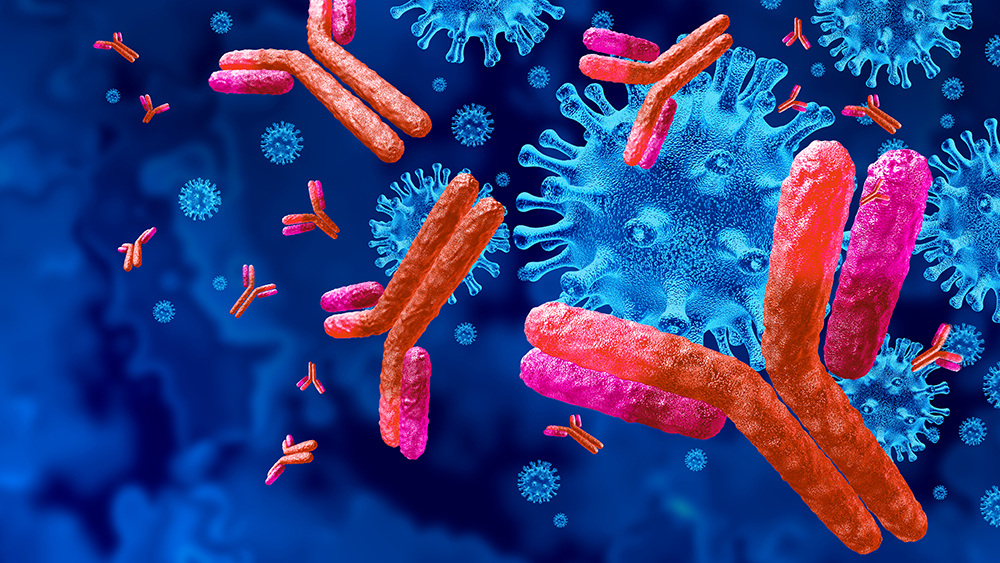
An overactive immune system going after traces of viral RNA may be the cause of COVID-19 symptoms after treatment.

An overactive immune system going after traces of viral RNA may be the cause of COVID-19 symptoms after treatment.
What you need to know
People who get COVID-19 can be treated with a five-day course of an antiviral drug called Paxlovid (nirmatrelvir and ritonavir), which drastically reduces a person’s chance of being hospitalized or dying from COVID-19. But about 5% of people who take the medicine get symptoms or test positive a week or so later in what some call “COVID rebound.” There is concern that the five-day treatment course is not long enough to wipe out the virus and that people experiencing a rebound may have an inadequate immune response to SARS-CoV-2, the virus that causes COVID-19.
In a small study supported by the National Institute for Allergy and Infectious Diseases, researchers found that Paxlovid did not hinder the immune response. In fact, people who experienced COVID rebound seemed to have more active immunity, suggesting the symptoms could be partly due to an overactive immune system sweeping up the last bits of the virus.
What did the researchers do?
Researchers looked at the health information of 14 people who were already in a COVID-19 study at the NIH Clinical Center in Bethesda, Maryland. This included eight people who got COVID-19 and experienced COVID rebound, six of whom took Paxlovid. The other six people got COVID-19, recovered, and didn’t experience COVID rebound. Everyone in the study had been vaccinated, and no one got seriously ill. The researchers collected data on how long the people were ill and analyzed nasal swabs and blood.
What did they learn?
Whether they took Paxlovid or not, the people who experienced COVID rebound made antibodies against COVID-19 equally fast. This suggests that Paxlovid was not stifling the immune response of those who took it, allowing researchers to rule out a poor immune response allowing the virus to linger and cause COVID rebound.
But antibodies are only half of the immune response. The other half, the T cell response, was active, too — in fact, it was more active in people who experienced COVID rebound than in those who didn’t. This suggests that COVID rebound might be caused by an overactive T cell response that is trying to eliminate all traces of the virus.
Why is this research important?
This research suggests that Paxlovid is working as expected, even though symptoms may come back or people may test positive for the virus afterward. Additionally, small studies like this help researchers figure out what’s going on in the body or in the cells, providing leads for other studies.
Where can I go to learn more?
Findings suggest COVID-19 rebound not caused by impaired immune response
-
An NIH news release shares more details about this study.
Coronavirus (COVID-19) Update: FDA Authorizes First Oral Antiviral for Treatment of COVID-19
-
The FDA authorized the use of Paxlovid in December 2021 for certain patients with COVID-19.
Antiviral Nasal Spray Shows Promise Fighting COVID-19
-
Nasal sprays may be a promising first line of defense against SARS-CoV-2 infection.
Sources
Epling, B. P., Rocco, J. M., Boswell, K. L., Laidlaw, E., Galindo, F., Kellogg, A., Das, S., Roder, A., Ghedin, E., Kreitman, A., Dewar, R. L., Kelly, S., Kalish, H., Rehman, T., Highbarger, J., Rupert, A., Kocher, G., Holbrook, M. R., Lisco, A., Manion, M., … Sereti, I. (2022). Clinical, virologic, and immunologic evaluation of symptomatic coronavirus disease 2019 rebound following nirmatrelvir/ritonavir treatment. Clinical Infectious Diseases, ciac663. Advance online publication. https://academic.oup.com/cid/advance-article/doi/10.1093/cid/ciac663/6749408

News and Stories
Read stories about the efforts underway to prevent, detect, and treat COVID-19 and its effects on our health.
 An official website of the United States government
An official website of the United States government

